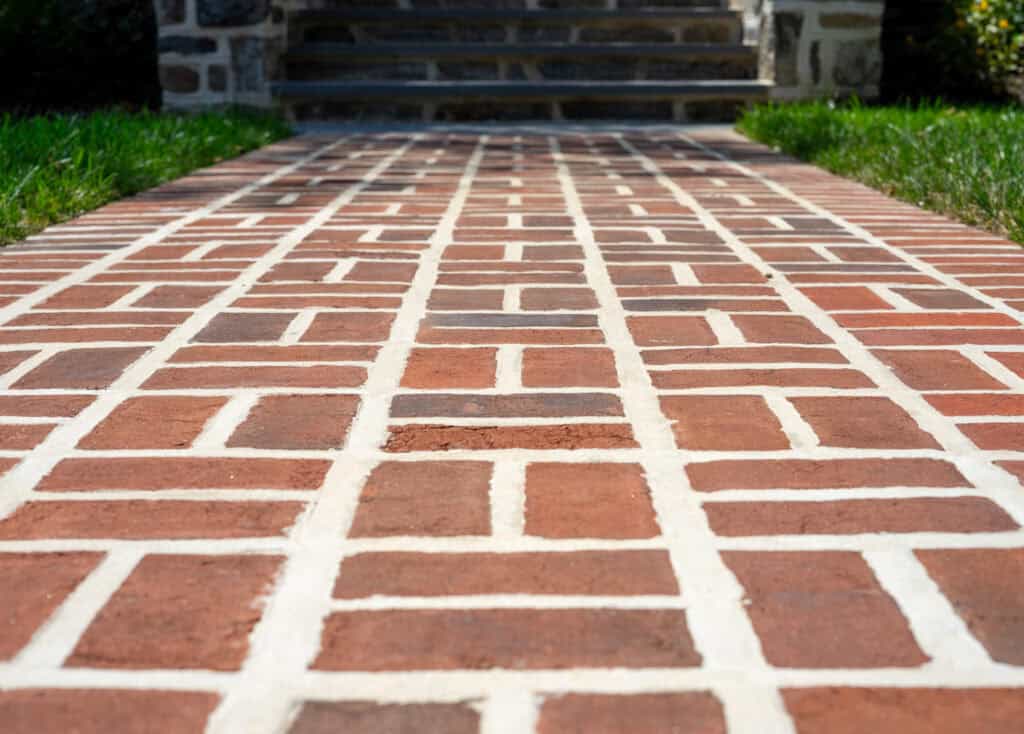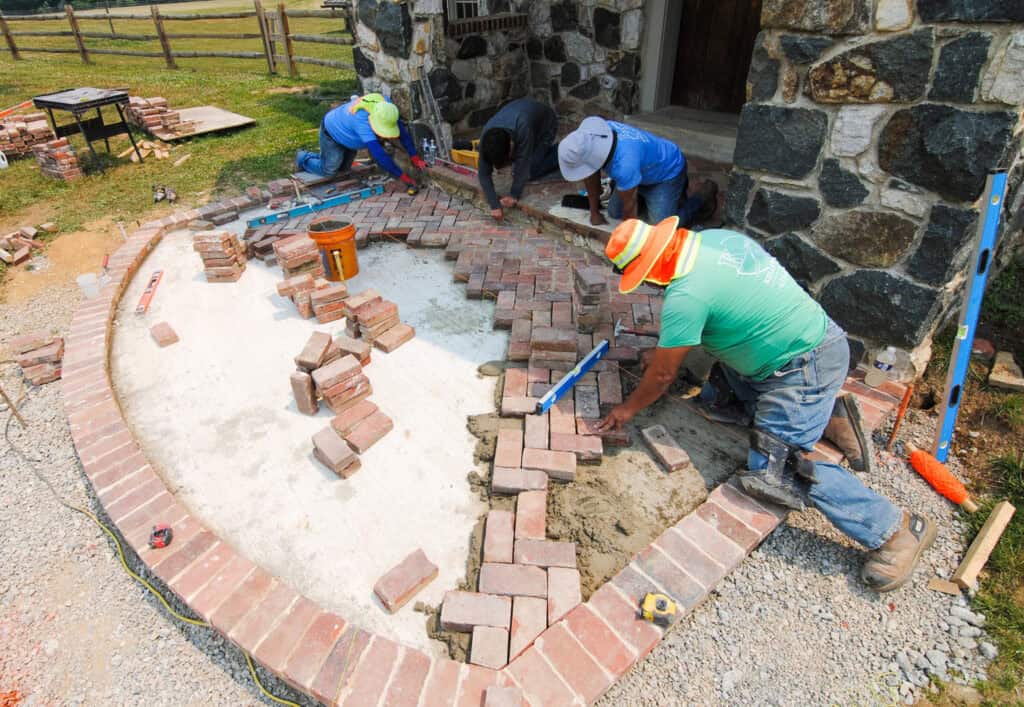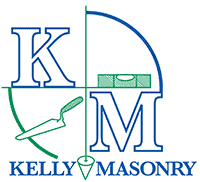Brick and masonry structures are known for their durability, timeless beauty, and ability to withstand the test of time. However, just like any other part of your home, these materials require maintenance to stay in top shape. Whether it’s a charming brick patio or a classic stone fireplace, masonry can become worn down over time. Cracks, chips, and even water damage can take a toll on the aesthetic appeal and functionality of your brick and masonry features. Repairing these issues is essential to preserving your home’s value and ensuring safety. If you’ve noticed signs of damage, it’s important to act quickly before the situation worsens.
The cost to repair brick and masonry can vary widely depending on the extent of the damage, the materials used, and where you live. Minor repairs may not break the bank, but larger or more complex issues could result in significant expenses. Understanding what drives these costs will help you make informed decisions and avoid surprises. Whether you’re planning to repair a small section of your exterior or tackle a more extensive project, it’s important to factor in all of the variables that influence pricing.
In this guide, we’ll walk you through the common issues that affect brick and masonry, what factors determine the repair costs, and how you can make sure you’re getting a fair price. By the end, you’ll have the knowledge to restore your masonry features and love them once again—without breaking your budget.

Common Issues with Brick and Masonry: What You Need to Look For
Before jumping into the costs of repairing your brick and masonry, it’s important to understand the types of issues that commonly arise. This will not only help you spot problems early but also help you better assess the extent of the damage.
The most frequent issue with brick and masonry is cracks. Over time, shifting temperatures, moisture, and settling foundations can cause the mortar joints to weaken or break. These cracks may appear small at first, but if left untreated, they can expand, leading to structural instability and costly repairs. Additionally, spalling (where bricks break off or become pitted) is another common problem caused by freeze-thaw cycles or exposure to harsh weather. This damage can be purely cosmetic at first, but left unchecked, it can compromise the integrity of your walls.
Water damage is also a significant concern for masonry. Water seeping into brick walls can lead to efflorescence (white mineral stains) or mold growth, both of which can deteriorate the materials over time. Masonry is porous, which means it can absorb water easily, making waterproofing an important aspect of long-term care. Settling foundations or shifting walls are structural issues that may require major repairs and can cause significant disruptions to your masonry features.
Understanding these issues allows you to spot them early and get ahead of potential problems. Addressing them promptly can save you money on repairs and help maintain the beauty and safety of your brick and masonry.
What Influences the Cost of Brick and Masonry Repairs?
When it comes to the cost of repairing brick and masonry, several factors can influence the final price. From the extent of the damage to the type of materials used, each element plays a role in determining how much you’ll pay. Understanding these factors will help you better estimate what to expect for your repair project.
One of the biggest factors influencing cost is the extent of damage. If the problem is relatively minor, such as a few cracked mortar joints or small chips, the repair will likely be less expensive. However, if the damage is extensive, such as large cracks or a severely damaged foundation, the cost can increase significantly. Large-scale repairs may require more labor, specialized equipment, and replacement of materials, which all contribute to a higher price tag.
The materials used also affect the cost of repairs. Standard brick and mortar repairs tend to be more affordable than working with specialized materials like natural stone or custom masonry. Depending on your home’s aesthetic, you may need to match specific bricks or stones, which could increase the overall cost. Additionally, labor costs can vary depending on where you live and the complexity of the repair work. Highly skilled masons may charge higher rates, but their expertise is crucial for ensuring the repair is done correctly.
Location and accessibility are also important. If the area requiring repairs is difficult to access, such as a high wall or a narrow backyard, the cost of scaffolding or equipment may add to the overall expense. Finally, the type of repair needed also affects pricing. Mortar repairs, tuckpointing, and small-scale fixes will generally cost less than rebuilding entire sections or addressing structural issues like a shifting foundation.
By understanding these factors, you can better assess the cost of your masonry repair project and make an informed decision about how to proceed.
Average Costs of Brick and Masonry Repairs: What to Expect
Knowing what to expect in terms of costs for brick and masonry repairs can help you budget effectively. Repair prices can vary, but there are some general guidelines that can give you an idea of what you might pay based on the type of work required.
For mortar repointing, which involves removing old mortar and replacing it with new material, you can typically expect to pay between $5 and $25 per square foot. The cost depends on the size of the area being repaired and the complexity of the job. For brick replacement, costs can range from $6 to $20 per brick, depending on the type of brick and labor involved. If you need to replace a large section of wall, the cost can escalate quickly.
For more extensive work like masonry restoration, the price can vary significantly, with an average cost of $15 to $30 per square foot, depending on the size of the project. Foundation repairs or addressing settling issues can be the most expensive type of masonry work, with costs ranging from $1,000 to $10,000 or more, depending on the severity of the damage and the scope of repairs needed.
It’s important to get multiple quotes from contractors to ensure you’re getting a fair price. Keep in mind that while some repairs may seem small, addressing them early can prevent larger, more costly problems down the line.

DIY vs. Professional Repairs: Which Is Right for You?
When it comes to brick and masonry repairs, you may wonder if you can tackle the job yourself or if hiring a professional is the better route. While minor repairs like filling small cracks or replacing a few damaged bricks may be feasible for a DIY project, larger repairs are best left to professionals.
DIY repairs are often an appealing option for homeowners looking to save money. Simple tasks like patching cracks or fixing small chips in the brick can be done with basic tools and materials. However, it’s important to be cautious. Incorrectly mixing mortar, using the wrong materials, or failing to properly clean the surfaces before repairing can lead to poor results. In some cases, improper repairs can make the situation worse, leading to more costly fixes down the line.
For more complex repairs, such as repointing mortar, dealing with structural issues, or repairing extensive water damage, professional masonry contractors are the best choice. Skilled masons bring the expertise needed to ensure the job is done right. They have the right tools, materials, and knowledge to address the damage safely and efficiently. Plus, professionals can help ensure that the repairs meet local building codes, which may be difficult to navigate on your own.
Why You Shouldn’t Delay Masonry Repairs: The Benefits of Timely Action
Timely brick and masonry repairs are essential not only for maintaining the aesthetic appeal of your home but also for ensuring its structural integrity. Neglecting repairs can lead to more severe damage over time, ultimately costing you more in the long run.
One of the main benefits of addressing masonry issues early is that it can prevent further damage. For example, cracks in the mortar may seem minor at first, but if left untreated, they can lead to water infiltration, mold growth, or even structural instability. By acting quickly, you can avoid the need for costly repairs down the road.
Additionally, improving the appearance of your brick and masonry features will boost your home’s curb appeal. Whether you’re preparing to sell your home or simply want to maintain its value, well-maintained masonry adds charm and elegance. Finally, timely repairs can help ensure the longevity of your brick and masonry elements. Properly maintained masonry can last for generations, making it a worthwhile investment.
FAQ: Everything You Need to Know About Brick and Masonry Repairs
1. How do I know if my brick or masonry needs repair?
If you notice visible cracks, chipped or missing bricks, or signs of water damage such as mold or efflorescence (white powdery stains), it’s time to consider repairs. Additionally, if your masonry is shifting or appears unstable, it’s crucial to address the issue as soon as possible to prevent further damage.
2. How much does it cost to repair a small crack in my brick wall?
The cost to repair a small crack depends on its size and the materials required. Typically, minor crack repairs can range from $150 to $500. However, if the crack has caused deeper structural damage or affects a larger area, the cost will increase significantly.
3. Can I repair my masonry myself, or should I hire a professional?
Small repairs, like filling minor cracks, can be a DIY project if you’re handy with tools. However, for larger issues such as mortar repointing, brick replacement, or structural concerns, it’s best to hire a professional mason. They have the expertise and tools to ensure the repair is done correctly and lasts longer.
4. What’s the difference between repointing and brick replacement?
Repointing involves removing old mortar from between the bricks and replacing it with fresh mortar. This is typically needed when the mortar has deteriorated but the bricks themselves are still in good condition. Brick replacement, on the other hand, involves removing and replacing damaged bricks entirely, which is necessary when bricks are cracked, spalled, or missing.
5. How long do brick and masonry repairs typically last?
The longevity of your masonry repairs depends on the extent of the damage, the quality of materials used, and how well the repairs are maintained. In general, repointing can last anywhere from 15 to 30 years, while full masonry restorations or foundation repairs can last a lifetime if properly maintained.

Get Your Brick and Masonry Looking Great Again with Kelly Masonry
If you’re dealing with brick or masonry damage and want to make sure it’s repaired correctly, Kelly Masonry is here to help. Specializing in patio and walkway repair, Kelly Masonry brings years of experience to each project, providing reliable and affordable masonry solutions. Whether you’re facing small repairs or extensive restoration, Kelly Masonry’s team is dedicated to restoring your masonry features so that you love them again. To learn more about their services or to schedule a consultation, visit Kelly Masonry’s Patio and Walkway Repair Services.
